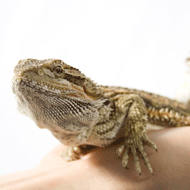Council adopts scheme to tackle impulse buying

EMODE classifies animals as Easy, Moderate, Difficult or Extreme, according to how challenging they are to keep.
Brighton and Hove City Council has become the first in Britain to adopt a new scheme aimed at tackling impulse pet buying.
From January 1, 2015, pet shops in the area will be asked to provide an EMODE leaflet to anyone thinking of buying a pet.
EMODE is a tool created last year by a team of 18 vets, scientists and technicians. It aims to help potential pet owners make informed decisions by categorising animals as Easy, Moderate, Difficult or Extreme, depending on how challenging they are to keep.
The Animal Protection Agency (APA) is urging councils to take up the scheme to reduce impulse purchases. Exotic pets are often mistakenly marketed as being "easy to keep", leading to widespread animal welfare problems.
Brighton and Hove's Licensing Committee voted in the scheme at a meeting on November 20.
Stephanie Powell, committee chair and Green Party Councillor, said: "Impulse buying of pets, especially exotic animals, is the root cause of a whole raft of animal welfare and environmental problems.
"It was therefore very important for the Greens to ensure Brighton and Hove City Council genuinely tackle this issue by adopting the EMODE initiative. This is the first Council in Britain to do so and I hope many more follow our lead."
Welcoming the news, APA's director Elaine Toland, said: "As a Brighton-based organisation that helped to develop EMODE we are particularly proud that the initiative has been adopted on our doorstep and we are looking forward to pet shops taking this on.
"In my view, pet shops that hand out the EMODE leaflet signal their commitment to responsible pet selling and should inspire greater confidence in prospective purchasers.
"We are delighted that EMODE is rapidly gaining support and has also received the ‘thumbs up’ from UK central government."



 The latest
The latest